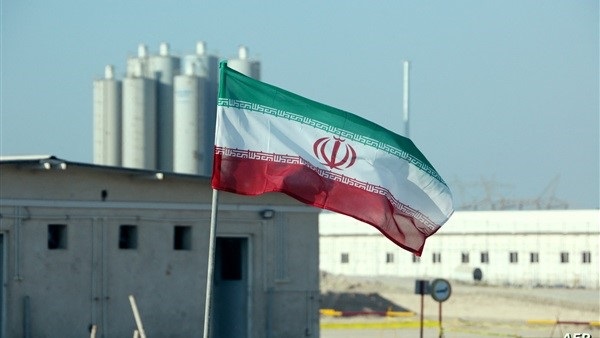US military build-up to deter Iran: Will it bring back the tanker war?

Signs of escalation are increasing between the United States
and Iran in the wake of Washington sending additional forces to the Red Sea in an attempt to deter Tehran, limit its behavior in
the region, and disrupt international navigation, according to what the United
States said, to which Iran responded by threatening to seize American ships.
Additional forces and the Iranian threat
More than 3,000 US soldiers arrived in the Red Sea aboard
two warships as part of Washington's response to the seizure of two tankers by
Iran, according to what the US Navy announced, increasing the US military
build-up in the tense Gulf waterways that are vital to the global oil trade,
which Tehran considered prompting instability in the region.
The US military said that Iran has either seized or
attempted to seize nearly 20 international-flagged vessels in the region over
the past two years. The US Navy's Fifth Fleet said in a statement that the US
sailors and marines entered the Red Sea on Sunday after crossing the Suez Canal
in a previously announced move.
The US move comes soon after Washington announced that it
would send additional F-35 and F-16 fighters, along with a warship, to the Middle
East in an effort to monitor the region's main
waterways after commercial cargo ships were detained or harassed by Iran in the
last few months. The US military build-up renews the possibility of a repeat of
the 2019 scenario, when a series of attacks on ships took place in the
strategic Gulf waters at times of tension between Washington and Tehran.
In Iran's first reaction to the American buildup, Tehran
warned that it would seize American ships in the event of any “harm” at the
instigation of the United States, according to Brigadier General Ramazan
Sharif, spokesman for the Iranian Revolutionary Guards.
The Fars News Agency quoted Sharif during the commemoration
ceremony for Iranian Journalists’ Day as saying, “We thank God that Iran has
reached a level of strength and power that we can confront every American
action and harm, such as seizing ships, and responding in kind by seizing their
ships.”
Upcoming skirmishes
Dr. Mohamed Benayah, an academic researcher specializing in
Iranian affairs, said in exclusive statements to the Reference that the aim of
this step is to confirm the American presence in the Middle East and threaten
to deter any Iranian threats.
According to Benayah, despite Washington's assertion that it
does not seek to enter into a war with Iran, and that it only wants to increase
pressure on Tehran to force it to negotiate and sign a new nuclear agreement
that will shape its missile program and behavior in the region, this step
suggests that the United States will continue to abide by its commitments as
far as providing security for the countries of the region, especially after
talking about reducing the number of US forces in the region and focusing on
the new Cold War with China and Russia, and the conviction of the region’s countries
of Washington's failure to deter Iran after a series of offensive operations
targeting oil facilities and tankers in the Gulf.
He added that, on the other hand, Iran responded by carrying
out naval military maneuvers on Abu Musa Island, in a clear message to the
United States and the Gulf states of the danger of friction with Iran on
stability in the region, and therefore it can be said that conducting these
maneuvers reflects the continuation of Iranian policies in the Gulf.
Benayah concluded his statements by saying that, based on
all of the above, the coming period will not be devoid of skirmishes between
Iran and the United States, and perhaps Iranian attempts to target tankers
belonging to Washington or the European Union, which threatens the return of
the “tanker war”, especially after the recent Iranian provocations to the Gulf
governments that recently announced the reopening of relations with Iran.







